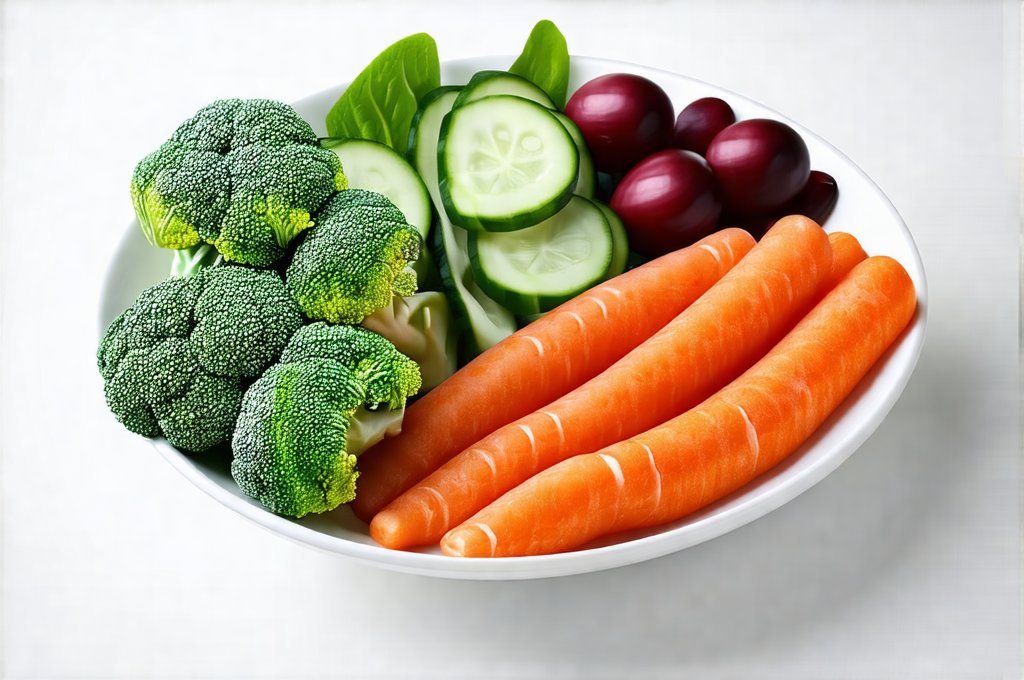Bloating, gas, discomfort – these are all too familiar experiences for many people, often linked to fermentation happening within the digestive system. While some fermentation is natural and even beneficial (think yogurt or sauerkraut!), excessive fermentation can lead to unpleasant symptoms and disrupt gut health. It’s not always about eliminating entire food groups; instead, it’s often about making informed choices and incorporating routine-friendly foods that minimize the potential for unwanted gas production. Understanding how certain foods interact with your gut microbiome is key to feeling comfortable and energized. This article explores practical dietary strategies focused on reducing fermentation risk without drastic restrictions, focusing on readily available options and easily adaptable habits.
Many factors contribute to increased fermentation, including individual sensitivities, imbalances in gut bacteria, and the specific composition of your diet. Foods high in certain types of carbohydrates – particularly FODMAPs (Fermentable Oligosaccharides, Disaccharides, Monosaccharides, And Polyols) – are rapidly fermented by bacteria in the large intestine, potentially causing digestive distress. However, focusing solely on restriction isn’t always the answer. A more sustainable approach involves understanding which foods are less likely to cause fermentation and building a routine around those choices while gradually identifying personal trigger foods. This means prioritizing easily digestible options and employing simple cooking methods that can reduce fermentability. You might also find valuable insight into how eating in front of a screen increases reflux risk as it relates to digestive discomfort.
Building Blocks for a Less Fermentable Diet
The foundation of a diet geared towards reduced fermentation lies in understanding food categories and making strategic swaps. Rather than eliminating entire groups, focus on choosing variations within those groups that are less prone to causing issues. For example, rice is generally easier to digest than beans, and cooked vegetables are often better tolerated than raw ones. Prioritizing whole, unprocessed foods is always a good starting point as these contain fewer additives and potential irritants. This isn’t about deprivation; it’s about mindful selection.
Consider the role of fiber. While essential for overall health, excessive insoluble fiber can contribute to fermentation. Finding a balance – opting for cooked vegetables over large quantities of raw fibrous options, or incorporating soluble fiber sources like oats and bananas in moderation – is crucial. Protein sources should generally be lean; fatty meats take longer to digest and can indirectly promote fermentation due to increased transit time in the gut. Focusing on white meat poultry, fish, or tofu are good choices.
Finally, hydration plays a vital role. Adequate water intake helps move food through the digestive system efficiently, reducing the opportunity for prolonged fermentation. It also supports a healthy gut microbiome, which is essential for balanced digestion. Aiming for at least eight glasses of water per day can significantly impact your overall digestive comfort. A well-hydrated system is simply less prone to harboring excessive bacterial activity. If you struggle with related symptoms, understanding GERD and the risk of sleep disorders in adults can also be helpful.
Simple Cooking Techniques and Food Preparation
How you prepare food drastically impacts its fermentability. Certain cooking methods break down complex carbohydrates, making them easier to digest and reducing the amount available for fermentation. Steaming, boiling, or baking are generally preferred over frying, which can add unnecessary fats and potentially irritate the digestive system. Gentle cooking is key.
Beyond the method, consider portion sizes. Even easily digestible foods can cause issues if consumed in excessive amounts. Smaller, more frequent meals can also be beneficial as they prevent overloading the digestive system. This allows for better nutrient absorption and reduces the likelihood of undigested food reaching the large intestine where fermentation occurs. Additionally, chewing your food thoroughly is paramount; it’s the first step in the digestion process and significantly reduces the burden on the gut. Foods that calm the stomach can offer additional relief, too!
One often overlooked aspect is spice use. While spices are generally healthy, some (like garlic and onions) can be highly fermentable for certain individuals. Experimenting with alternative flavorings like ginger, turmeric, or herbs may offer a more comfortable experience. Remember that everyone’s tolerance levels differ; what causes issues for one person might not affect another. It’s important to remember how the smell of food can also play a role in triggering symptoms.
Identifying Personal Trigger Foods
The most effective way to reduce fermentation risk is to identify your personal trigger foods. This isn’t about following a generic elimination diet but rather conducting a careful self-assessment.
- Keep a food diary: For at least two weeks, meticulously record everything you eat and drink, along with any associated symptoms (bloating, gas, discomfort, etc.).
- Look for patterns: Analyze your diary to identify foods that consistently correlate with digestive issues.
- Trial elimination: Once you’ve identified potential triggers, eliminate them from your diet one at a time for a week or two and observe if your symptoms improve. Reintroduce the food slowly and monitor for any recurrence of symptoms.
This process requires patience and self-awareness but can provide invaluable insights into your digestive system’s unique needs. Don’t assume general rules apply to you. Your body is individual, and understanding its specific responses is critical. Understanding the impact of fast food can help inform your choices as well.
The Role of Probiotics & Prebiotics – A Delicate Balance
Probiotics (beneficial bacteria) and prebiotics (food for those bacteria) are often touted as gut health solutions, but their role in fermentation is nuanced. While probiotics can help restore a healthy microbiome, introducing them indiscriminately can sometimes exacerbate symptoms if your gut is already imbalanced or overly sensitive.
Prebiotics, found in foods like onions and garlic, can increase bacterial activity—which could potentially worsen fermentation for some individuals. However, prebiotic-rich foods aren’t inherently bad; they are vital for a healthy microbiome. The key is to introduce them gradually and monitor your body’s response. Consider incorporating probiotic-rich fermented foods (like yogurt or kefir – if tolerated) in small amounts and pairing them with easily digestible prebiotics sources like cooked oats or bananas.
Mindful Eating Habits & Stress Management
Digestion isn’t solely a physical process; it’s deeply intertwined with our mental state. Stress significantly impacts gut function, slowing down digestion and creating an environment conducive to fermentation. Practicing mindful eating – focusing on your food without distractions, chewing thoroughly, and savoring each bite – can promote better digestion and reduce stress levels.
Techniques like deep breathing exercises, meditation, or yoga can further help manage stress and optimize digestive health. Creating a calm and relaxed atmosphere during mealtimes is crucial. Avoid eating when you’re rushed, anxious, or emotionally distressed. Taking even a few minutes before each meal to consciously relax can make a significant difference in how your body processes food. Remember that gut health isn’t just about what you eat; it’s also about how you eat and the overall state of your well-being.


















